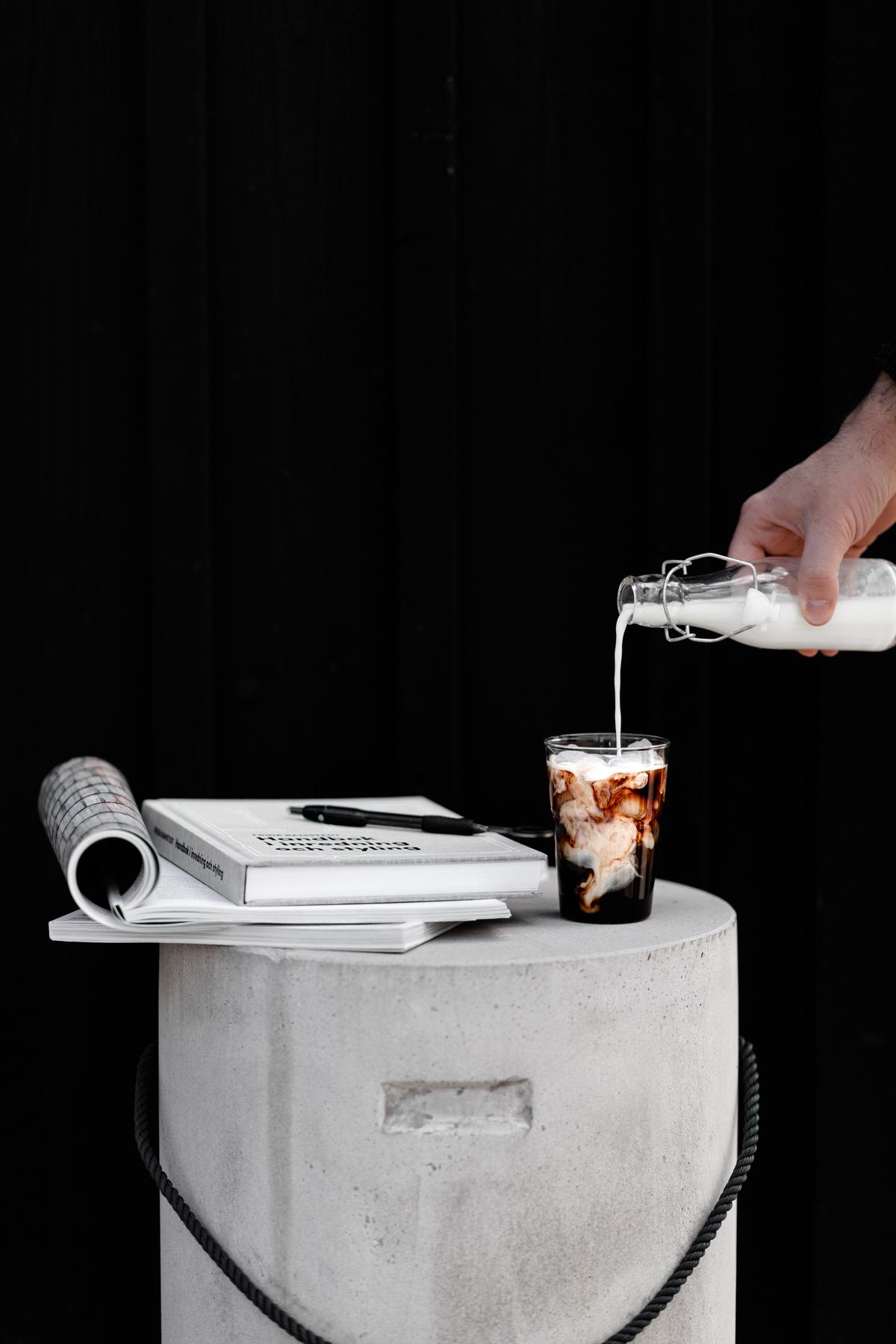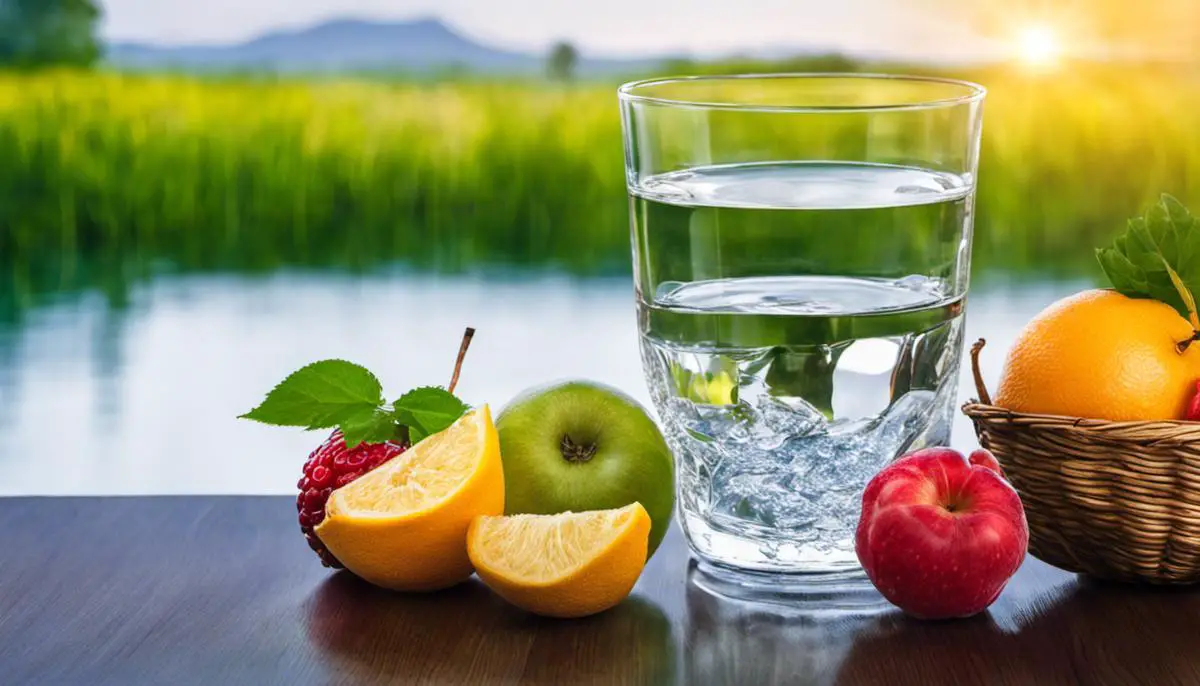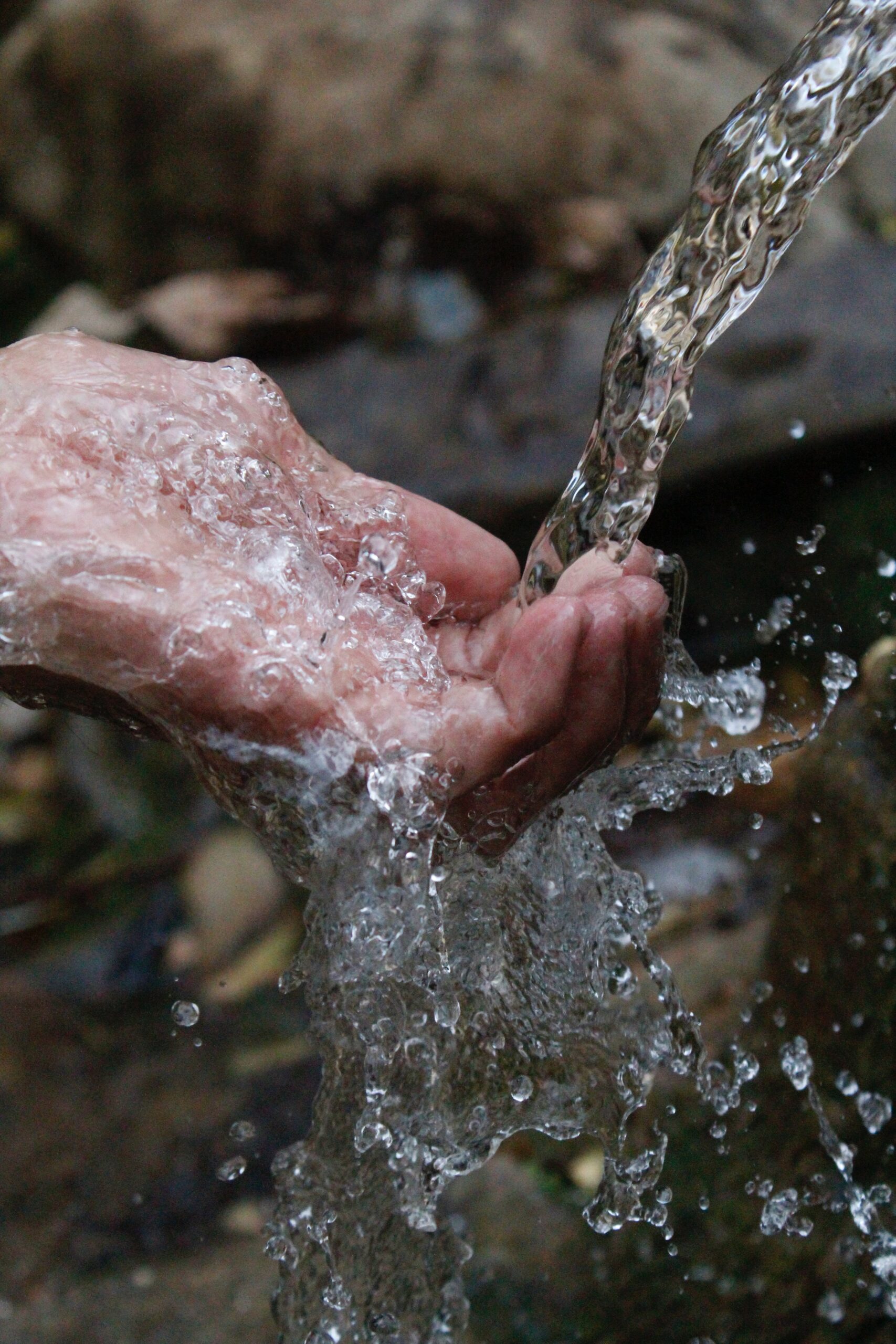As the lifeblood of our bodies, water plays an essential role in maintaining our overall health and well-being. Its significance goes beyond quenching thirst as it fuels every cell, tissue, and organ in our body, supporting their optimal functionality. Understanding the importance of water intake uncovers the profound impact this clear, tasteless liquid has on our daily lives, as it is the key to maintaining our body’s proper hydration levels. We should keep this in mind as we delve deep into its role in our bodily processes, its daily recommended intake, and the signs of dehydration and overhydration. Throughout this journey, we will also uncover practical ways to increase our water intake and ensure we are staying adequately hydrated for the sake of our health.
Understanding the Importance of Water Intake
Understanding the Importance of Water Intake
Water plays a fundamental role in how the human body functions on a daily basis. Scientific findings show that every cell, tissue, and organ in our body needs water to work properly. It is the building block of life and is responsible for a variety of essential bodily processes. From aiding digestion to preventing disease, water is the medium in which all biochemical reactions occur.
The human body is approximately 60% water. This varies somewhat based on factors like age, sex, and body composition. For example, men tend to have a higher percentage of body water than women due to comparatively greater muscle tissue, which holds more water. The water within us doesn’t stay put – it is constantly entering and leaving our body, and the balance between the two actions is crucial.
Water acts as a governing factor in bodily processes like digestion. It helps break down the food we eat, allowing nutrients to be separated and absorbed. The absorbed nutrients are then transported to different body cells where they are used for energy, growth, and cell repair. Additionally, water softens the stool, preventing constipation.
Another critical function of water is the role it plays in facilitating nutrient absorption. Water-soluble vitamins such as vitamin C and B-complex vitamins need water to act as a channel so the body can take what it needs before expelling the rest. In the absence of enough water, the body might fail to soak up these essential nutrients, leading to deficiencies.
When it comes to regulating body temperature, water is often overlooked as a key player. It absorbs heat produced by the body as it burns calories for energy and releases the excess heat in the form of sweat. As the sweat evaporates, it cools the body. This is especially critical during physical activity when heat production is increased.
Doctors’ Advice on Water Intake
Despite the importance of water intake, there is a lack of genuine consensus on how much water a person needs per day. The popular advice often harkens back to the “8×8 rule,” which stipulates that individuals drink eight 8-ounce glasses of water a day. However, this isn’t necessarily scientifically grounded.
Drinking needs can vary significantly based on a variety of factors such as age, sex, weight, activity level, overall health, and even the climate in which a person lives. As such, a general guideline often provided by doctors is to “drink when thirsty.”
The National Academies of Sciences, Engineering, and Medicine suggests a daily water intake of roughly 3.7 liters (or about 13 cups) for men and 2.7 liters (or about 9 cups) for women. This encompasses total fluid intake including all beverages and water-rich foods.
Doctors advise to not just focus on the amount but also on signs of dehydration, which can impact physical and cognitive functions. Some common indications of dehydration include dark urine, dry mouth and lips, headache, fatigue, and dizziness. By prioritizing hydration, individuals have the potential to improve both physical health and cognitive function.
However, doctors also caution against overhydration, or hyponatremia. This is a serious condition that occurs when one drinks so much water that kidneys can’t rid the body of the excess water, leading to a drop in sodium levels in the blood. It can lead to nausea, seizures and, in rare cases, can be fatal.
In Conclusion
Water plays a crucial role in the smooth functioning of our bodies. Its importance can be observed in various vital processes such as digestion, nutrient absorption, and body temperature regulation. Although the precise quantity of water needed daily can differ based on individual circumstances, it’s vital to heed the body’s signals and hydrate whenever you feel thirsty. Yet, care should also be taken not to consume water in excess. It is essential for each of us to assess and cater to our own hydration requirements for the sake of our overall wellbeing.

Photo by brettwharton on Unsplash
The Recommended Daily Water Intake
Understanding the “Eight Glasses a Day” Recommendation
The ‘eight glasses a day’ recommendation is a commonly heard guideline from medical professionals when it comes to water consumption. According to this advice, everyone should aim to drink eight 8-ounce glasses of water daily. This equates to approximately 2 liters, or half a gallon. This rule of thumb, while easy to remember and implement, might not align with scientific evaluations in every case. Nevertheless, it serves as a reasonable starting point or baseline for the average person’s hydration needs.
Alternatives to the ‘Eight Glasses’ Rule
While the ‘eight glasses a day’ rule is widespread, it’s important to note that health organizations offer varying advice. The National Academies of Science, Engineering, and Medicine suggest a daily water intake of 3.7 liters (or about 13 cups) for men and 2.7 liters (or about 9 cups) for women. This total considers all beverages, including tea, coffee, and even food.
The Institute of Medicine (IOM) provides a similar recommendation, advising an adequate total daily fluid intake of 3.7 liters for men and 2.7 liters for women. Meanwhile, The U.S. National Institutes of Health (NIH) suggests that the vast majority of adults will meet their hydration needs if they consume 2 to 3.5 liters of water a day, with the inclusion of fluid from all food and beverages.
Why Recommendations Vary
The disparity in these recommendations is due in part to the varying factors that impact an individual’s hydration needs. Age, sex, physical activity level, health conditions, and climate can all determine how much water one should consume.
Elderly people, for instance, may need more water as their sense of thirst reduces with age. Similarly, individuals living in warmer climates or those engaging in significant physical activity may require more water due to increased sweating.
The Impact of Health Conditions on Water Intake
Certain health conditions can also influence the amount of water a person needs. For example, people with kidney stones may need to drink more water to help dilute the substances forming the stones. Meanwhile, heart failure and some types of kidney, liver, and adrenal diseases may impair excretion of water and necessitate the restriction of fluid intake.
Monitoring Individual Hydration Needs
Given these various factors, it could be more beneficial for individuals to assess their own hydration needs rather than sticking rigidly to a general guideline. Signs of good hydration include rarely feeling thirsty and producing 1.5 liters (6.3 cups) or more of colorless or light yellow urine a day.
Doctors often recommend increasing water intake if you’re experiencing specific health situations such as kidney stones or constipation, you’re pregnant or breastfeeding, you’re about to engage in intense physical activity, or you’re in a hot climate or high altitude.
It’s essential, however, to avoid consuming excess water without appropriate need since it may result in a rare, life-threatening condition called water toxicity or hyponatremia. This condition happens due to the imbalance of electrolyte levels in your body.
Understanding Hydration
The concept of water intake is not standard for everyone. It can differ greatly from one individual to another based on various factors. These factors extend beyond just body weight and physical activity, making it more personalized. If you are uncertain about your daily water intake, make sure to talk to healthcare professionals who can guide you depending on your personal circumstances.

Photo by allthestories on Unsplash
Signs of Dehydration and Overhydration
Recognizing Dehydration
Not taking in enough water to replenish what your body loses leads to dehydration. This condition arises when your body lacks sufficient water to perform its regular functions. Symptoms can include feeling lightheaded, excessively tired, and having dry skin. You may also notice an unusual increase in thirst and a decrease in urine output. In the most severe cases, confusion can set in.
When major dehydration strikes, it’s treated as a medical urgency prompting immediate attention. Its initial indications are often mild, which may include a dry mouth, feeling sluggish, and decreased or unusually dark urine. If the dehydration intensifies, the signs could worsen. You may experience extreme thirst, dizziness or feelings of emptiness, no perspiration, sunken eyes, decreased blood pressure, and a fast heartbeat.
Risks of Drinking Too Little Water
Doctors generally advise that it’s essential to drink enough water to replenish lost fluids and keep bodily functions running smoothly. Dehydration can lead to serious health problems if not addressed. Long term, it can lead to urinary and kidney problems, including kidney stones and urinary tract infections. It can also affect cognitive functions, including your attention span, memory, and motor skills.
Overhydration and Its Signs
While it is less common, it is also possible to drink too much water. This is known as overhydration or water intoxication. Overhydration can result in hyponatremia, a condition where the sodium levels in your blood are dangerously low. Sodium is essential for nerve and muscle function, as well as maintaining the balance of fluids in your cells. Symptoms can include headache, nausea, vomiting, seizures, and in severe cases, can even be life-threatening.
Common signs of overhydration include frequent urination, especially at night, swelling of the hands, legs, or feet (also known as edema), and in severe cases, confusion, seizures or even coma.
Achieving a Balance in Water Intake
To ensure you’re properly hydrated, doctors advise aiming for a balanced water intake. This depends on various factors such as age, gender, weight, activity level, and climate. However, a general guide is the “8×8 rule,” which suggests drinking eight 8-ounce glasses of water a day (approximately 2 liters).
It is important to note that all fluids count towards this total, not just water. This includes drinks like tea, coffee, milk, as well as high-water-content foods such as fruit and vegetables.
Measuring Hydration State: Urine Color
One of the easiest ways to measure hydration is through the color of your urine. Light, straw-colored urine generally indicates that you’re well hydrated. Dark yellow or amber-colored urine could mean you are dehydrated.
It’s always important to listen to your body. If you’re thirsty, drink. If your urine is dark, drink more. If you find yourself frequently urinating and your urine is clear or very light in color, this could be a sign of overhydration. In this case, it may be advisable to reduce your fluid intake.
Medical Advice Disclaimer
Please bear in mind that the following guidelines on healthy water intake are general recommendations and may not be suitable for everyone. If you are feeling symptoms of overhydration or dehydration, if you have existing health complications, or if you are unsure about your hydration levels, we strongly recommend seeking advice from a healthcare professional for personalized guidance.

Ways to Increase Water Intake
Increasing Your Water Intake
Regular water consumption can sometimes seem difficult due to its lack of taste. However, there are a number of creative methods you can use to make drinking water more appealing. Consider enhancing the flavor of water by infusing it with fresh fruits, herbs, or vegetables. Anything from lemons, cucumbers, mint, to berries and watermelon can significantly improve its taste. In addition, flavored or mineral water can be an equally satisfactory alternative. Just make sure these options do not contain artificial sweeteners or added sugars, which can pose risks to your health.
Setting Reminders to Drink Water
Remembering to drink water throughout the day can be easily overlooked, especially during hectic days. Therefore, setting reminders can be particularly helpful in maintaining consistent water intake. Smartphone apps, alarms or using a water bottle with time markers can serve to remind individuals to drink water regularly. Additionally, having water before each meal can be an easy habit to develop that aids both digestion and hydration.
Foods with High Water Content
Increasing the intake of foods with a high water content can substantially contribute to overall hydration. According to doctors, foods such as cucumbers, lettuce, zucchini, watermelon, and strawberries are made up of over 90% water. Incorporating these foods into your diet can not only help maintain hydration but can also provide the body with essential nutrients. Other hydrating foods include tomatoes, grapefruit, cantaloupe, and peaches.
Structuring Water Intake Throughout the Day
Doctors often suggest structuring water intake throughout the day, as it’s more beneficial than consuming a large amount in a short time. Generally, it’s advised to drink two glasses of water upon waking, as it helps in kickstarting the metabolism. Consuming water before each meal and sipping throughout and after exercise is also recommended.
Avoid Dehydration Triggers
Certain lifestyle habits, foods, and beverages can contribute to dehydration. Alcohol, caffeinated drinks, high-sodium foods, and excessive sun exposure are common triggers of dehydration. While it’s not pivotal to completely avoid these, consciously limiting their intake and compensating with increased water consumption is advised by medical professionals.
It’s important to remember that each person’s water needs can differ based on factors like activity levels, age, health conditions, and climate. Therefore, it’s advised to consult with healthcare providers for personalized advice on water intake.

Being adequately knowledgeable about the importance of water is imperative in our journey to live healthier lives. We have examined how water is integral to our existence, given that it is vital for countless physiological processes, and we have deciphered the daily water intake recommended by health professionals. Thorough observations have been made on recognizing the symptoms of dehydration and overhydration, and practical advice on maintaining sufficient water intake has been imparted. Knowing all this, we can become vigilant about our water consumption and more conscious of the signs our bodies send us when we need to hydrate. Remember, sip on health, sip on water, and your body will thank you in its own special ways.
